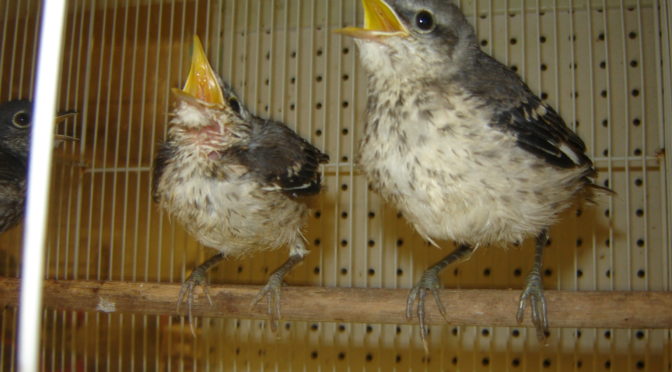 Most songbirds leave the nest before learning to fly. They are usually fully-feathered but may appear to have a shorter tail. Siblings may wander about, scattering in different directions while the parents continue to find, follow and care for them. This stage can last for several hours to a day or so, and in the case of Great Horned Owls, weeks. Once the fledglings learn to fly, the parents gather them together and begin teaching them the survival skills they will need to know such as finding food.
Most songbirds leave the nest before learning to fly. They are usually fully-feathered but may appear to have a shorter tail. Siblings may wander about, scattering in different directions while the parents continue to find, follow and care for them. This stage can last for several hours to a day or so, and in the case of Great Horned Owls, weeks. Once the fledglings learn to fly, the parents gather them together and begin teaching them the survival skills they will need to know such as finding food.
People often find fledgling birds temporarily stranded in a yard or on a porch and think they need help. Unable to fly, they become prey to pet dogs and cats.
This is a very important transition time for these birds and should not be interrupted. Birds brought into rehab during this time have a poor chance of survival. They are old enough to know that people are not their parents and resist being hand fed, yet they haven’t learned to feed themselves. Force feeding places them under additional stress.
If uninjured, stranded fledglings can be moved to a safer location nearby. Moving it to a nearby tree limb or herding it to a safer area may be all the “rescuing” it needs.

